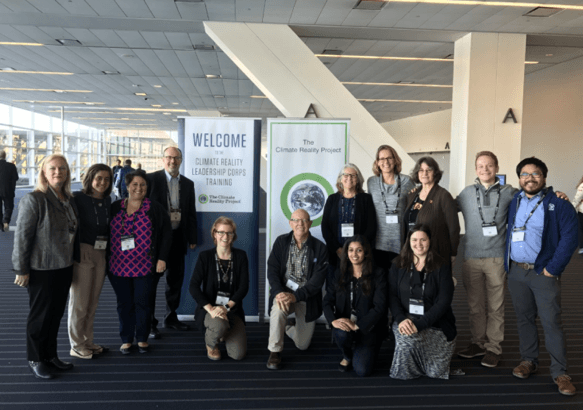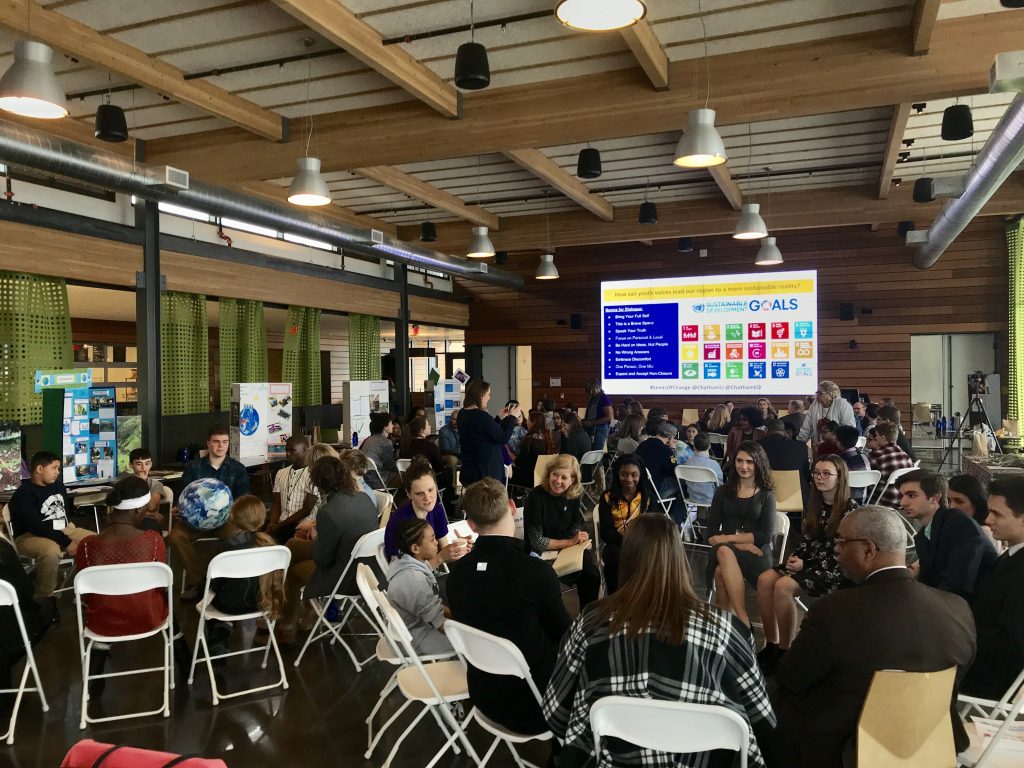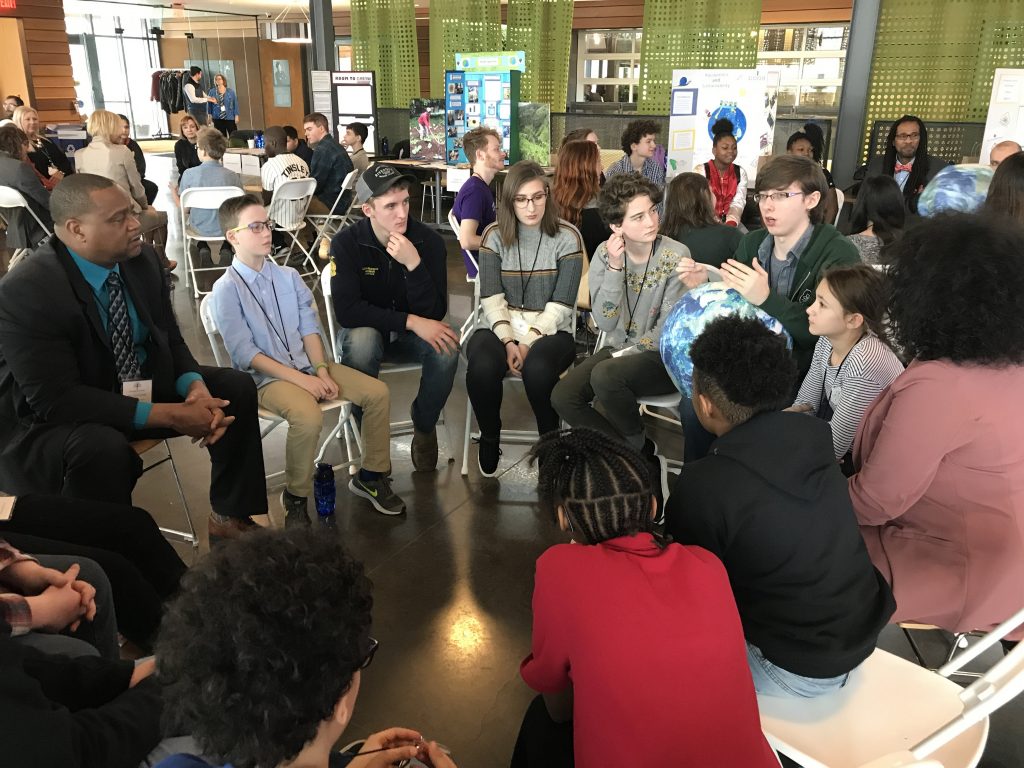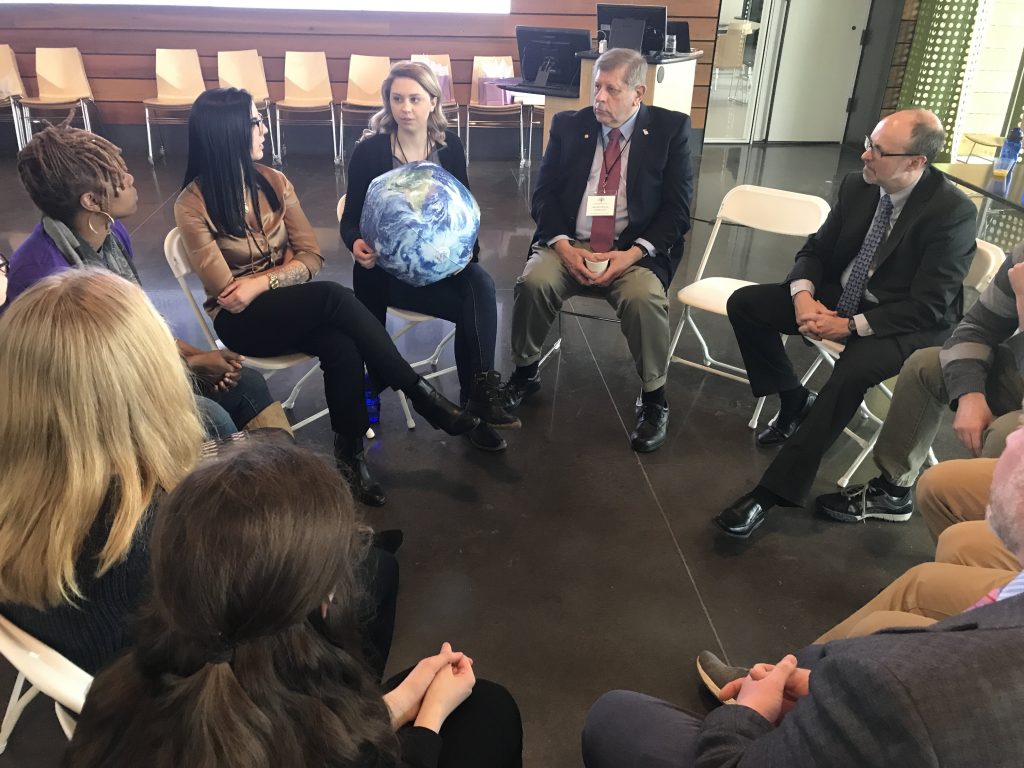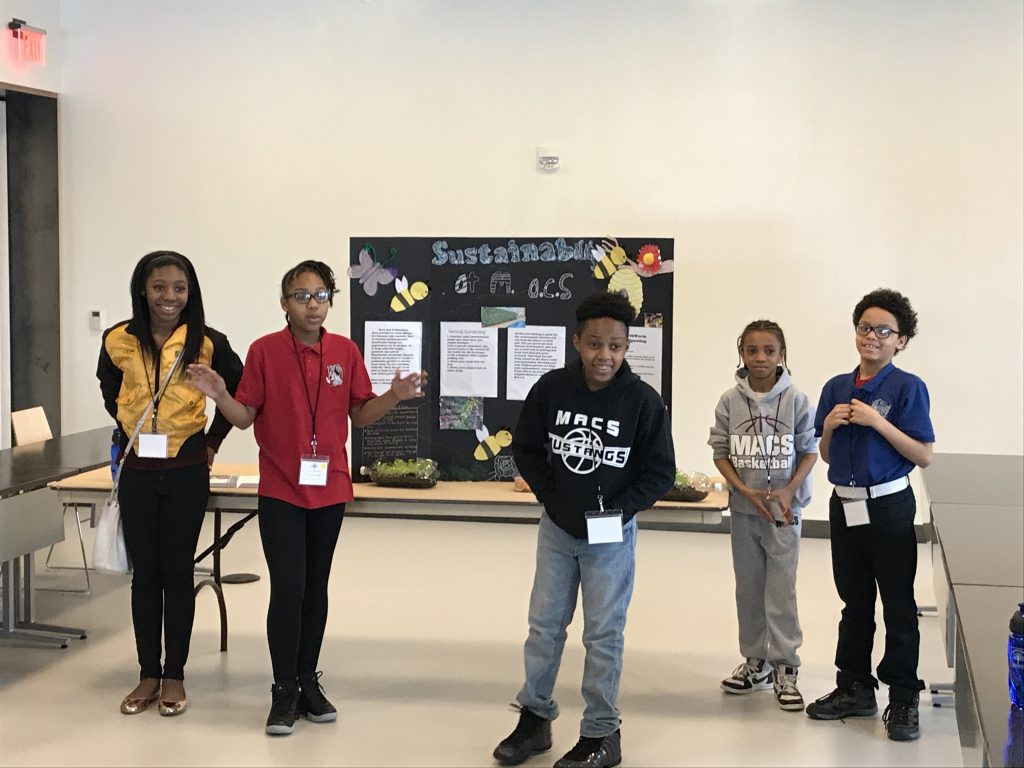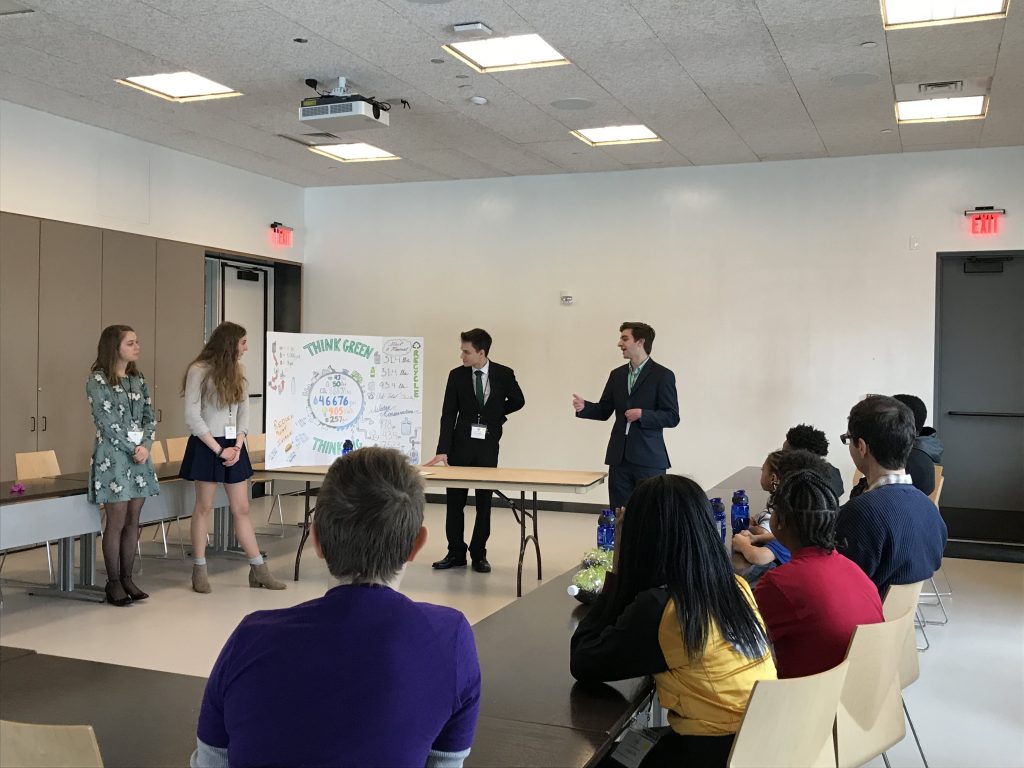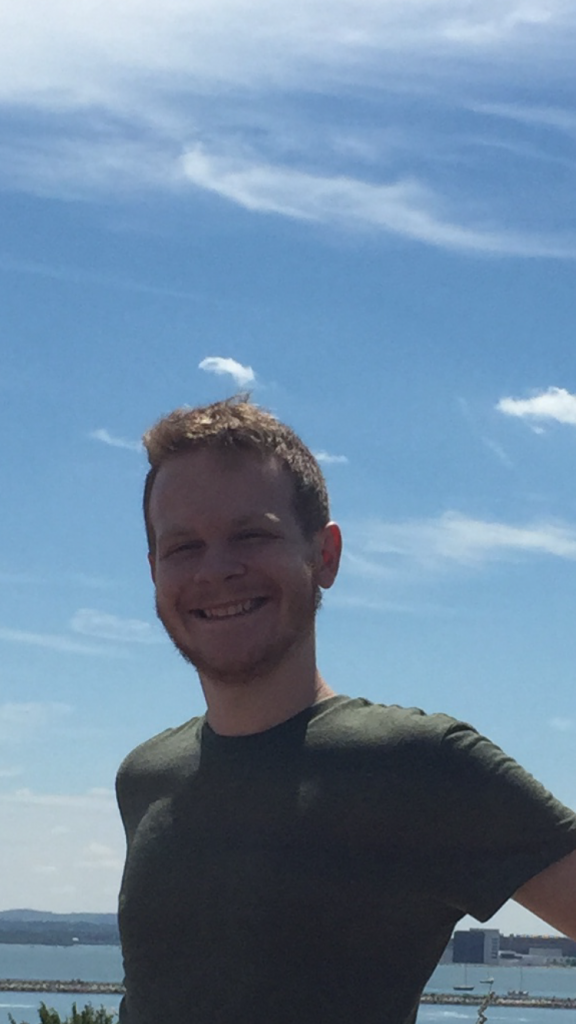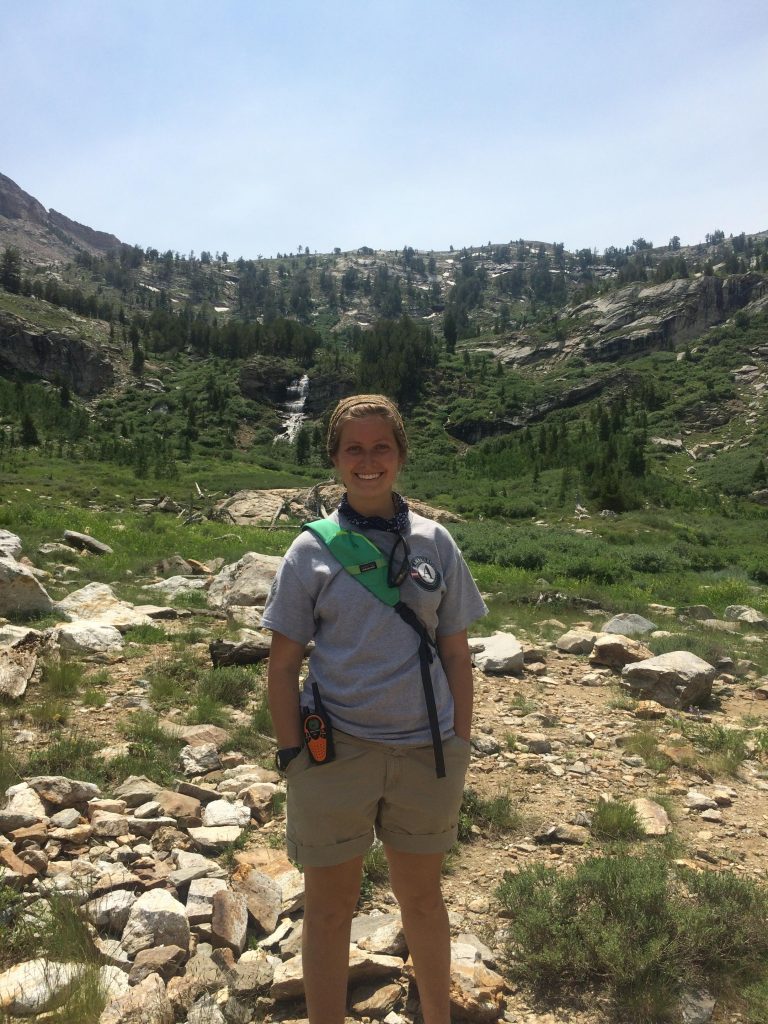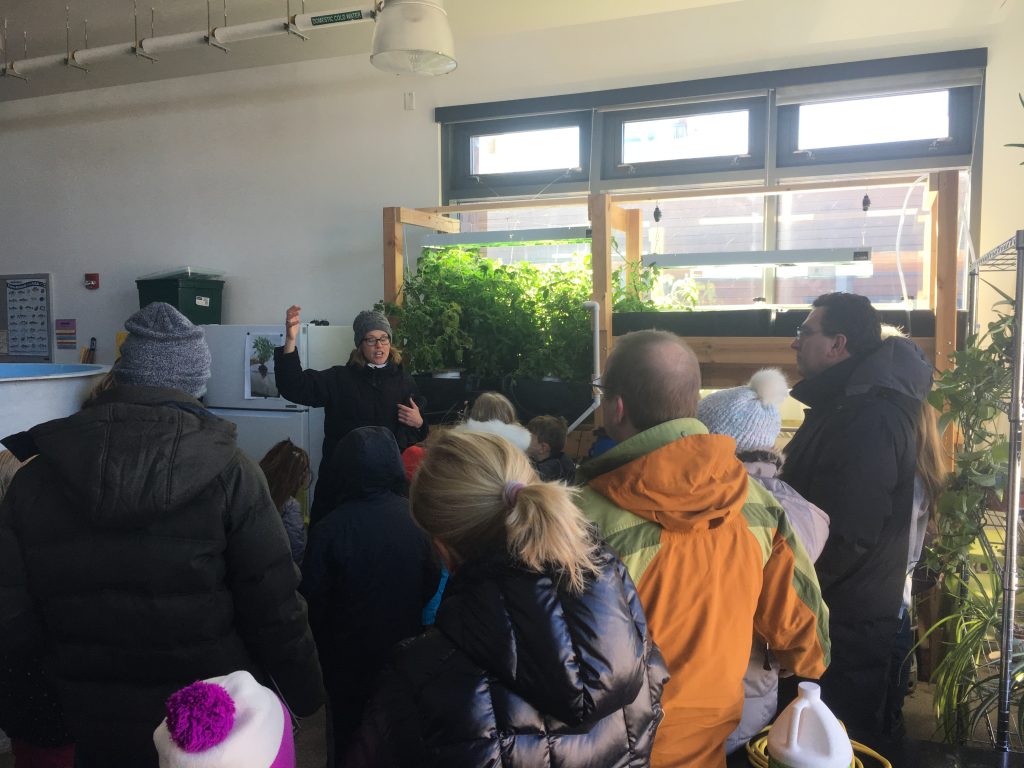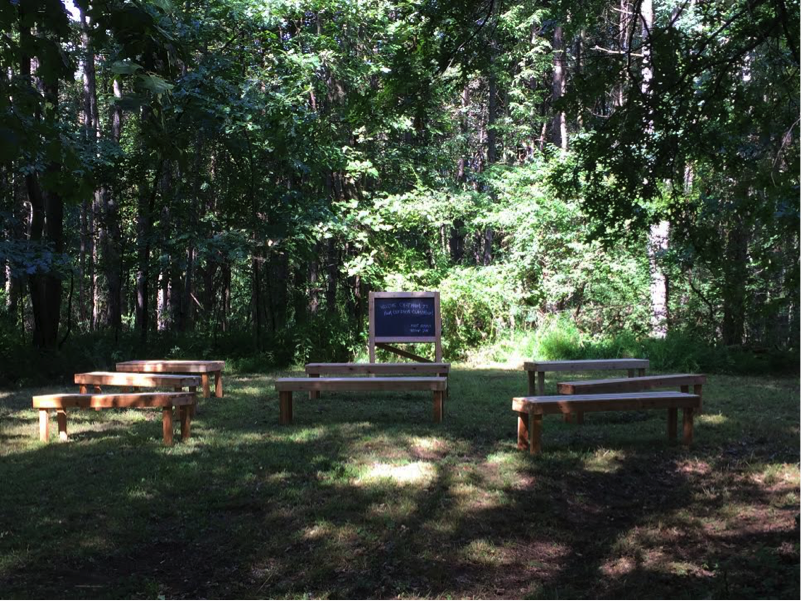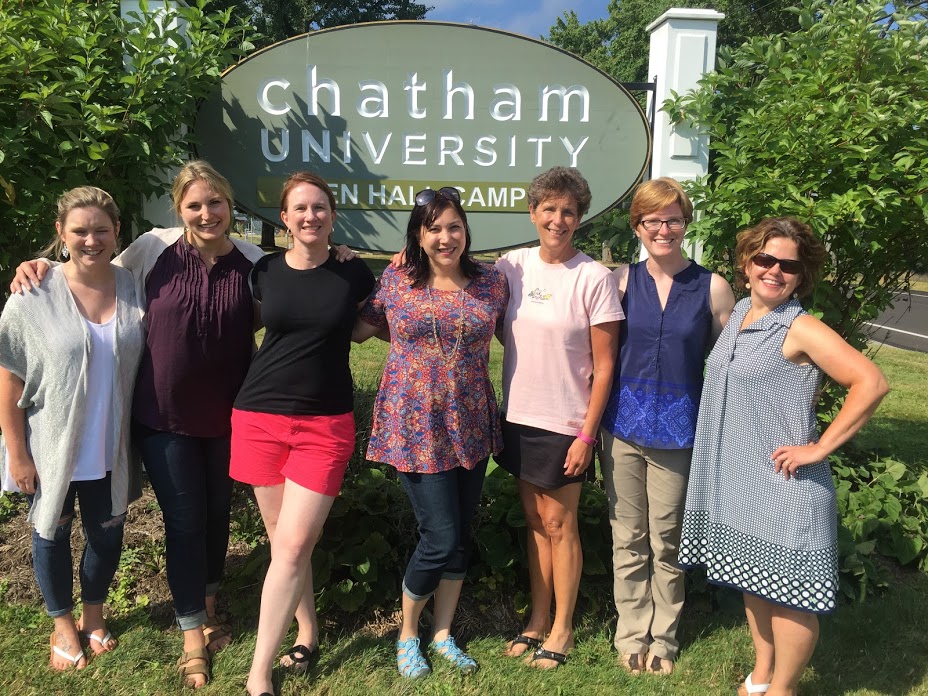Wow, what an amazing opportunity that we had and never shared! Time for a throwback post. Last October, three members of the K-12 Team attended a 3-day conference hosted by the Climate Reality Leadership Corps in order to gain more knowledge about climate change. The Climate Reality Leadership Project is an organization founded in response to the climate crisis that our currently world faces. Former Vice President Al Gore founded the Climate Reality Leadership Project. Over 1,400 people from Pittsburgh and all over the world convened for this event. The Climate Reality Leadership Project aims to train everyday citizens on how to best tackle climate change through becoming effective climate communicators.
Following opening remarks from the CEO of the Climate Reality Leadership Project, we heard Mayor Bill Peduto speak passionately about the city of Pittsburgh by outlining Pittsburgh’s resilient past and how the steel city is laying the foundation for a resilient future. Pittsburgh is a city that has reinvented itself by adapting to change and is continuously transforming to align with a greener, more sustainable world.
Former Vice President Al Gore lead multiple discussion panels on climate change. Attendees heard from world renowned scientists, like Dr. Michael E. Mann and Dr. Jennifer Francis, who both discussed cutting edge climate science.
The first panel held on the first day of the Conference, the social justice panel, was the most memorable. The climate and social justice panel helped set the tone for the whole conference by demonstrating climate change (or sustainability) is not just about being “green”. Attendees learned more about local environmental justice issues from three social justice leaders in Pittsburgh, including Fred Brown, who was the President and CEO of the Homewood Children’s Village at the time.
Conference attendees witnessed Al Gore’s famous slideshow presentation, you know, the one that was featured in “An Inconvenient Sequel.” In the presentation, Al Gore went over both the current and future issues surrounding global climate change. Some of us are familiar with rising tides, droughts, and increased forest fires as harsh realities of climate change, but did you know that significant precipitation events are also a result of anthropogenic climate change? We learned more about the deadly impacts of storms and climate change, including the devastating hurricanes that had just hit Puerto Rico, the Caribbean Islands, Houston, and Florida earlier this year.
The last few slides of Mr. Gore’s presentation ended on an uplifting note, inspiring attendees to continue the fight towards reducing global greenhouse gas emissions. Humans across the globe have managed to exceed previous expectations regarding renewable energy generation, proving mitigating climate change is possible. Likewise, Al Gore’s presentation demonstrated that CO2 emissions have begun to stabilize, offering a window of opportunity for global citizens to reduce their carbon footprints and decrease overall greenhouse gas emissions.
One great aspect of the conference involved the breakout sessions available. Each attendee had the opportunity to learn more about climate change related issues in depth. For example, attendees could choose to view presentations on fossil fuel development and health, organizing communities for renewable energy, or climate change presentation tips.
By attending the conference, each attendee is responsible for 10 separate acts of leadership on fighting climate change. Acts of leadership include writing letters to newspaper editors, organizing climate action campaigns, and mimicking Al Gore through presenting slideshows on climate change. Each Conference attendee has access to Al Gore’s presentation slides at his/her disposal. Now is the time to have climate change conversations with your family, especially with the holidays approaching. Speak to your cousins, your aunt, or your uncle about why climate change is important to you, and how we have the tools to solve it.
The Climate Reality Leadership Conference was hosted at the David Lawrence Convention Center (a LEED Gold complex) and was sponsored by the Heinz Endowments. Importantly, each day of the conference had plant-based food options available, because of the environmental implications surrounding the consumption of meat. Additionally, the Climate Reality Conference stressed waste management, as seen through the numerous composting bins located throughout the event.
The K-12 Team is incredibly grateful to have had the opportunity to learn more about climate change and interact with 1,400 other like-minded individuals. The K-12 Program will look to incorporate more climate change knowledge into our activities following this awesome event. Each member of the conference now has the tools to help solve climate change, so the next step involves educating others about the knowledge gained.
Members of Chatham University gathered and took a picture outside of the entrance to the Climate Reality Leadership Conference tables.
